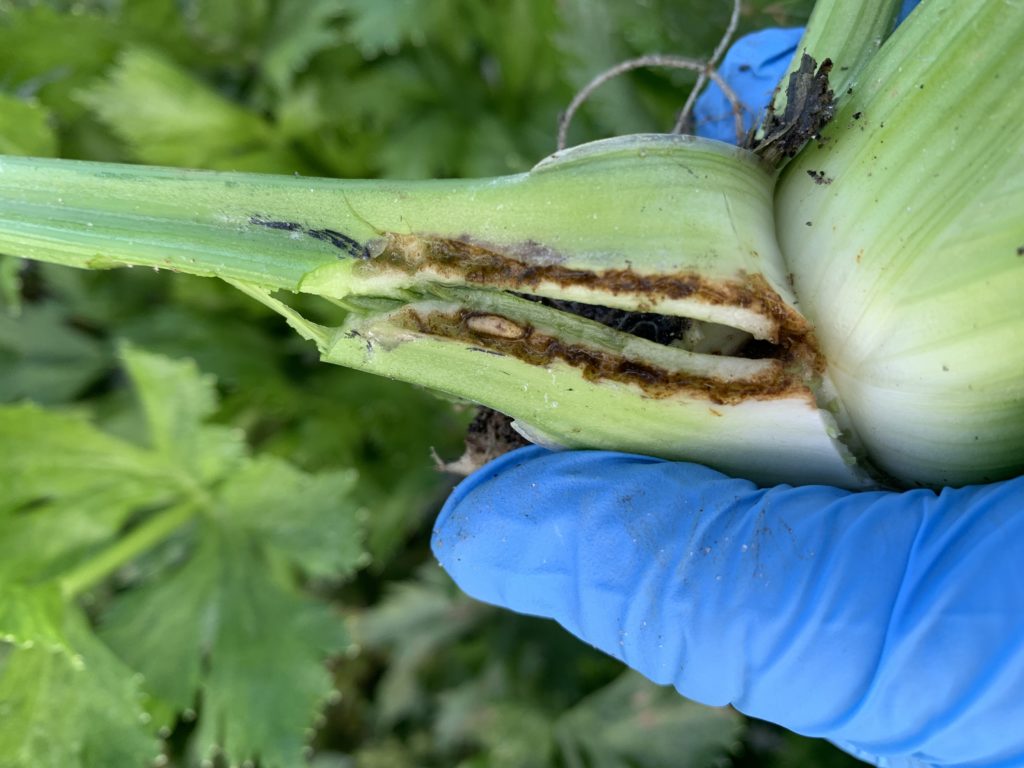By Clint Thompson
An emerging weevil pest is cause for concern for celery and parsley producers in South Florida.

Julien Beuzelin, University of Florida Institute of Food and Agricultural Sciences (UF/IFAS) assistant professor in entomology, discussed the impact that Listronotus sparsus could have on those two crops.
It could stunt the growth of celery plants and cause a quality issue. A similar impact is felt in parsley, though plant death can also occur.
“In the parsley you have stunting. Most likely you will have secondary pathogens that come in on the weevil injury and the plant dies. It opens the door for diseases,” Beuzelin said. “The females lay their eggs in the petioles. In celery the petioles can be pretty big. That’s what we eat. In parsley they’re a little smaller. The larvae can feed on the petioles.
“Between the two crops, you have some differences. In celery where they do the most damage is at the base of the petioles, especially those outer petioles. You can have tunnels that are as long as four inches from the base of the plant going up to the petiole. They can also feed on the crown of the celery plant. In parsley, because the petioles are way thinner, they tend to feed a little bit more at the base of the plant and on the roots of the plant. Celery, it’s mostly the petioles and the crown. Parsley, it’s mostly the petioles and the roots.”
Beuzelin and colleague Anna Meszaros, UF/IFAS Extension agent in Palm Beach County, first heard about the weevils a couple of years ago from growers. The cause for the weevil’s uprising is not definite but could be attributed to insecticides phasing out, climate changes or a combination of factors. Their research this past December led to observations of weevils just three weeks after planting celery.
UF/IFAS is researching potential new insecticides that could provide adequate control of the weevil, specifically Rimon and Exirel. Beuzelin is optimistic they would provide control of the larvae in the future.
Currently, Vydate® is labeled for weevil control and is what works best in celery, but it is not registered in parsley.
“It’s the only one we trust. In parsley, there is no option because Vydate is not registered.”









